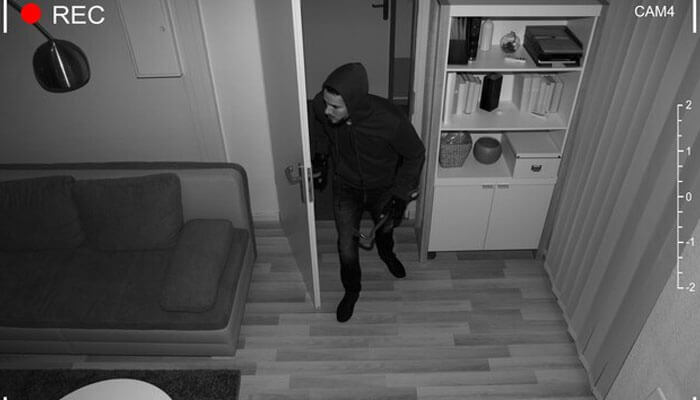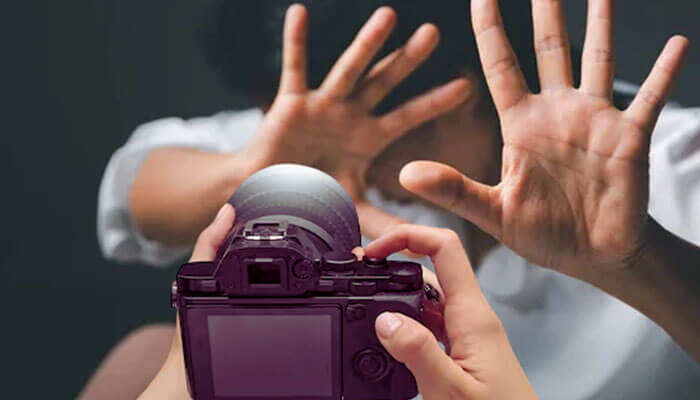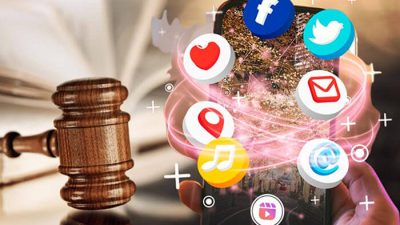Recording has become a common way of capturing significant moments, but it has also led to privacy concerns. The question that many individuals have is ‘What can I do if someone recorded me without my consent?’. The answer is yes, but it varies depending on the situation and where you live. This article provides you detailed information about the legalities to sue someone if someone recorded me without my consent.
What can I do if someone recorded me without my consent?
First, let us know about the privacy rights.
Understanding Your Privacy Rights:
It is important to understand the concept of privacy about recording before diving into the legalities. There are situations in which you have the right to privacy. For example, if you are at home or in a private place, you should anticipate that your words and actions will remain private. However, that expectation of privacy decreases when you are in public. In public areas, people generally have fewer rights to prevent others from recording them. But if someone records you without your consent, the laws are meant to protect you, especially when privacy is expected.
Is it illegal to record someone without their permission?
In many cases, it is illegal to record someone without their consent, and it may also violate their privacy rights. You may be able to sue someone for recording you without your consent based on the specific laws and regulations of your jurisdiction. In some jurisdictions, recording someone’s private conversations without their knowledge or consent is illegal while it is legal in others where only one participant must give consent.
It is important to speak with a lawyer who specializes in privacy laws if you think someone has recorded you without consent and you want to take legal action. They can help you to decide whether you have a case and give you advice on specific laws in your jurisdiction. Remember that if recording someone without their consent is against the law, the other person may be able use various exceptions or defenses.
Laws regarding the recording of someone without their consent:
You should be aware of the laws to know what can I do If someone recorded me without my consent. Different jurisdictions have various rules against recording someone without their consent. In some jurisdictions, recording any discussion or activity without obtaining everyone’s consent is illegal. This means that you have to let another person know in advance and have their explicit permission before recording a conversation with them.
In other jurisdictions, the recording is legal if only one party consents. This means that the recording is typically considered as legal as long as one participant in the conversation is aware of it and provides consent.
There are few exceptions where recording someone without consent is allowed:
1. Law enforcement:
Under some circumstances, law enforcement officials can be permitted to record the conversations or actions without obtaining consent. However, this is governed by stringent laws and that requires a valid reason, like an ongoing investigation.
2. Public places:
It is generally legal in many of the jurisdictions to record conversations or activities that take place in the public areas where there is no reasonable expectation of privacy. It is important to remember that laws pertaining to record in public areas may vary, so it is always better to check the specific regulations in your jurisdiction.
Can someone take legal action on those who recorded private conversation?
In many jurisdictions, recording a private conversation without any consent from all parties is illegal. On the basis of the jurisdiction, this is referred to as “one-party consent” or “two-party consent. “One-party consent refers to the legality of recording a conversation as long as one party gives their approval. All parties must agree for there to be two-party consent. The laws related to recording private conversations however, include some exceptions and variations.
Exceptions:
In certain situations, it could be legal to record a private conversation without the consent may allow. Law enforcement activities like wiretapping with a court order when recording is required for personal safety or property protection, are usually included in these exceptions. In addition, several countries have laws that allow recording under specified conditions, as when one party feels harassed or threatened. It is important to consult local laws and obtain legal advice to understand the specific regulations about recording private conversations in your jurisdiction.
Legality of recording vary in different states or countries:
States and countries may have quite distinct laws regarding the recording of conversations without consent. Some jurisdictions only require consent from one party, while others require consent from all parties. It is essential to understand the legal system in your specific jurisdiction.
1. One Party Consent States:
In the United States, one-party consent states allow recording conversations as long as one of the participants gives permission. This means that an individual may lawfully record a conversation in which they participate without informing other participants.
2. Two Party Consent States:
All parties must give their consent, before a conversation can be legally recorded in two-party consent states within the United States and other countries. There could be legal consequences if all parties’ consent is not obtained.
To ensure compliance to the specific laws, it is important to research and understand the specific laws related to recording conversations without consent in your state or country.
Evidences required to prove that someone recorded you without permission:
It is important to collect sufficient evidence to demonstrate that you were recorded without consent. Any recordings or videos that capture the act of recording without consent may be used as evidence. Any witnesses who heard or saw the recording being made can also offer valuable testimony.
Collecting any communication or supporting documents that indicates the person’s intent to record without permission may also be beneficial. Text messages, emails, or posts on social media about the recording could all fall under this category. Additionally, recording and maintaining any evidence of tampering with surveillance equipment or private belongings that are found nearby will strengthen your case.
Types of Evidence:
1. Recorded footage: Any audio or video that clearly shows the act of recording without consent.
2. Witness statements: Testimonials from people who were there while the recording was made.
3. Communication records: Emails, texts, or any social media conversations that express an intent to record without consent.
4. Physical evidence: Any evidence of tampering with surveillance equipment or personal belongings that you find in your surroundings.
Importance of Evidence:
When you try to prove that someone is recording you without your consent but having strong evidence is important. It enhances your credibility in legal proceedings and helps in establishing a precise timeline and sequence of events.
Is it legal for someone to record you at your home using a hidden camera
1. Privacy laws and Invasion of Privacy:
In many jurisdictions, using hidden cameras to record someone in their own house without their consent is considered as a violation of privacy. Although state and country privacy laws differ, people usually have a reasonable expectation of privacy in their own houses. You might be able to sue someone for invasion of privacy if they record you by using a hidden camera without your knowledge or consent.
2. Potential Legal Remedies:
It is important to collect evidence and speak with a privacy law specialist if you find out that someone has been secretly recording you in your own house. The specific legal remedies which are accessible in your jurisdiction can be determined with their support. In some situations, you may be able to bring a civil lawsuit to recover damages for emotional distress, invasion of privacy, or other similar claims. Criminal charges may be brought against the person who is responsible for the illegal recording.
3. Preventing Unauthorized Recordings:
There are several precautions you can take to avoid being secretly or unknowingly recorded in your own home. Check your surroundings regularly for any suspicious objects that can potentially house hidden cameras. Purchase anti-spy devices that are able to identify hidden cameras or audio recordings. It is also important to use a strong password to secure your Wi-Fi network and update the security settings on your electronic devices on a regular basis.
Potential consequences for someone who unlawfully records:
1. Criminal consequences:
There are severe criminal consequences for illegally recording another individual. It can lead to criminal charges that include invasion of privacy, trespassing, or even stalking in many jurisdictions where it is considered a violation of privacy laws. Some of the factors that determine the severity of consequences like the severity behind the recording, any harm caused to the victim, and the particular laws of the jurisdiction.
2. Civil Liability:
In addition to criminal consequences, people who illegally record others may also be held civilly liable. If someone records without consent, the victim may decide to file a lawsuit against them. This may result in financial damage that is being compensated for any kind of harm caused by the recording that includes emotional distress or reputational damage.
3. Professional Repercussions:
In addition to legal consequences, those who illegally record others may face professional repercussions. A person’s reputation and future job opportunities could be impacted if they are found guilty or liable for such actions. Employees who participate in illegal recordings may potentially face disciplinary action from their employers.
It is important to note that the specific consequences differ based on the local laws and circumstances of each case. It is advisable to speak with a legal profession, t o understand the possible consequences in a particular jurisdiction.
Protecting yourself from being recorded without your knowledge or permission:
In the current digital era, protecting oneself from being recorded without consent or knowledge might be difficult. However, people can take the following actions to minimize the risk:
1. Be aware of surroundings: Stay vigilant and be aware of your surroundings. Stay away from circumstances that may compromise your privacy, particularly in public places where there might be surveillance cameras or other recording devices.
2. Secure your devices: Make sure you have strong passwords and security measures on all of your personal devices, like laptops and smartphones. Install reputable antivirus software and update software regularly to stop hacking attempts and unauthorized access.
3. Review privacy settings: Understand how to manage your social media privacy settings, limit who may see your posts and information, and periodically check and delete any connections or followers that do not correspond to your preferences.
4. Use encryption: To protect your privacy, consider using encrypted messaging services or applications for sensitive conversations. Encryption ensures that only the intended recipient will be able to access and decode the messages.
5. Seek legal advice: If you think that illegal recording has violated your privacy, consult with a lawyer who focuses on media or privacy law. They can provide guidance on potential legal remedies and help to protect your rights.
While following these steps can help to reduce the possibility of being recorded without consent, it is important to remember that complete protection may not always be possible.
Conclusion:
I hope this article helps you to know, what can I do if someone recorded me without my consent. Public figures typically have less expectations for privacy than private individuals, but they still have certain rights. Whether it is legal to record someone without their agreement depends on various circumstances, that includes whether the recording is newsworthy and whether it involves extremely private concerns unrelated to their public responsibilities. When covering the actions of public figures, media outlets should also take ethical guidelines into consideration.
FAQ’s:
Q1. What can I do if someone recorded me without my consent?
Ans. If someone records you without your consent on private property or in circumstances where you have a reasonable expectation of privacy, you are able to take legal action against them and it will be more challenging to sue someone for recording you on public property or else if they are involved in the conversation.
Q2. Is it necessary to tell someone that you are recording?
Ans. As long as at least one person knows that the conversation will be recorded and has given their approval, it is legal to record phone calls or conversations in which you are not directly involved. According to federal law, consent from only one party is necessary.






